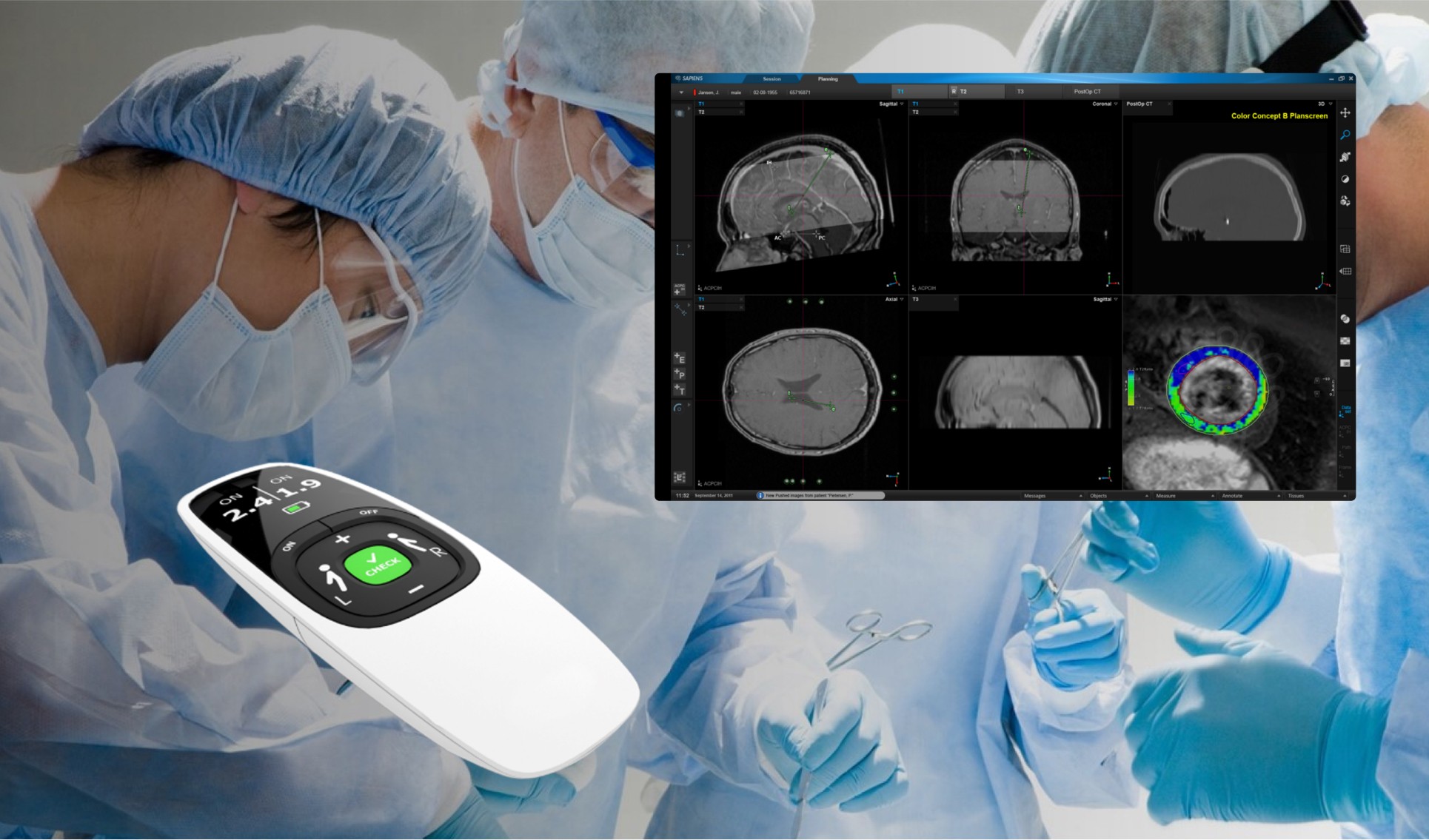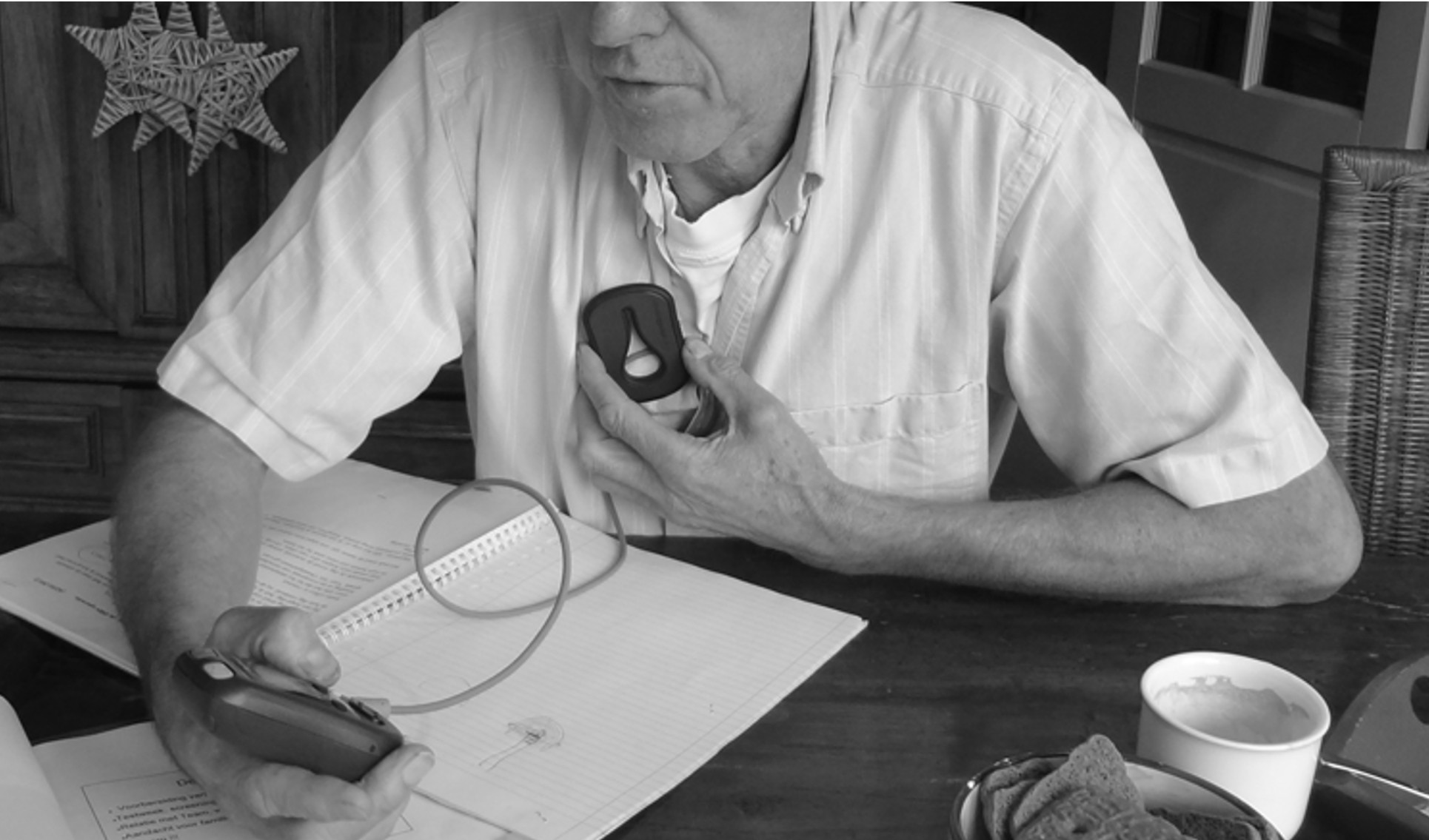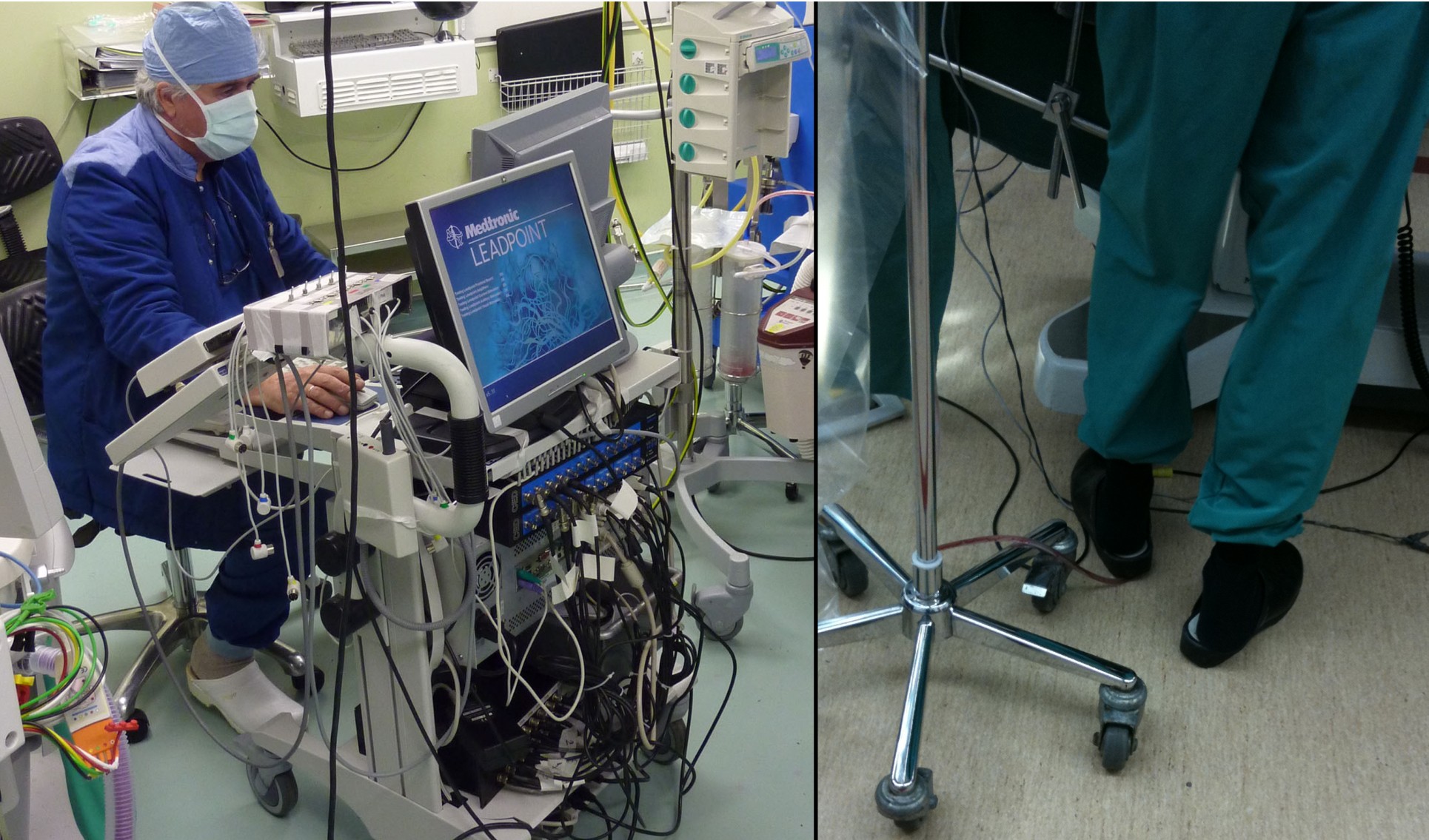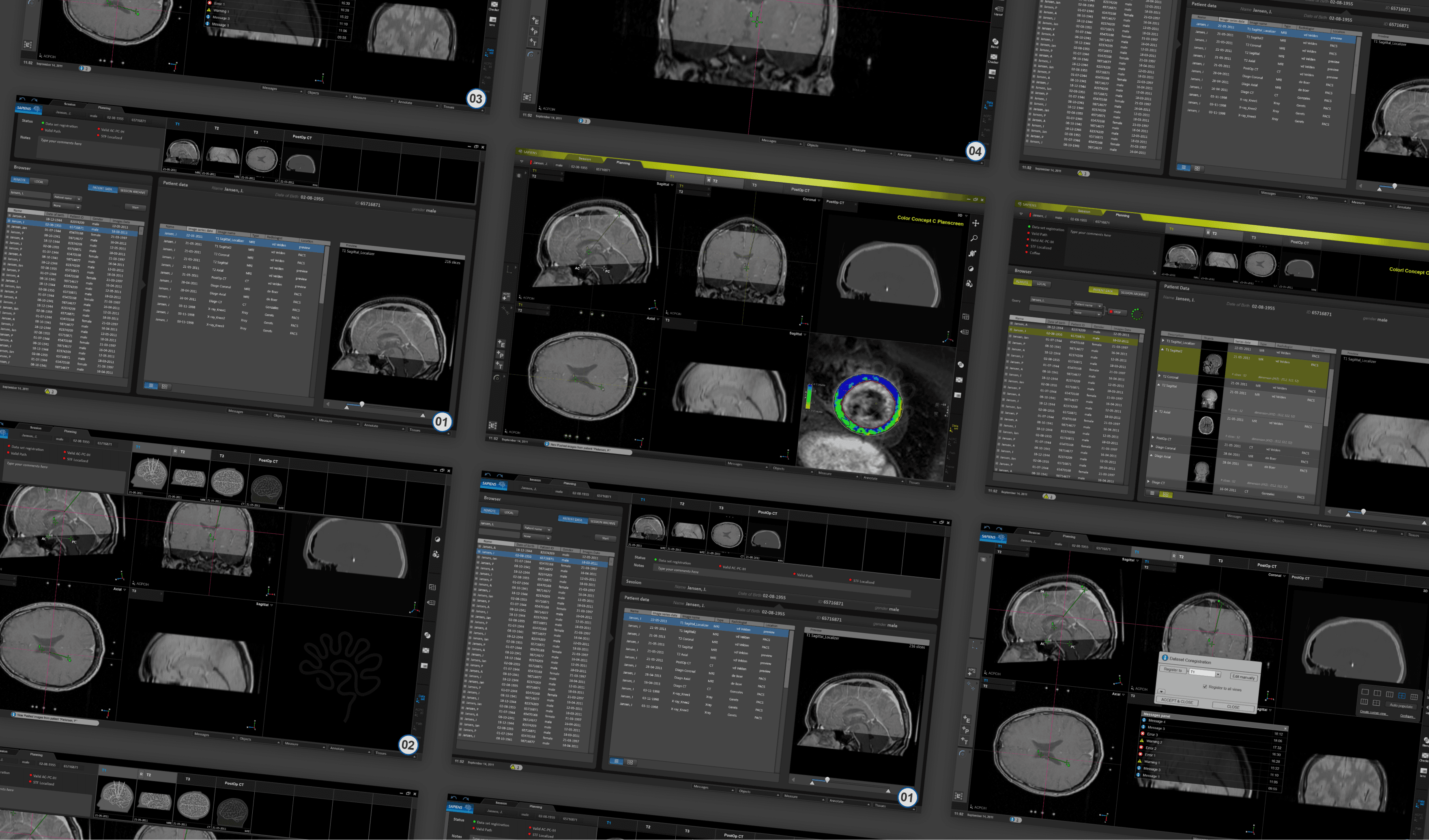UX/UI Design / Research
Sapiens / Medtronic
Lead Designer & Project Lead
Making a life-changing difference at the click of a button
Parkinson's is an awful disease with no known cure and existing medication can only alleviate symptoms to a certain degree. Deep Brain Stimulation is a neurosurgical procedure, developed in the late 80ies where Parkinson's symptoms are alleviated by electrical stimulation of a specific part of the brain by means of an implant.
The results are dramatic. Patients go from constant heavy tremors to tranquility in a matter of seconds after activating the system. There are many videos online, but I have seen it with my own eyes and I can say it put a lump in my throat every time.
Sapiens' major innovation was in the much higher resolution of the implant and the increased possibilities to finetune the stimulation settings and therefore the results. But Sapiens ambitions were even higher. They wanted to streamline the whole procedure for both patients and medical professionals. That is where VanBerlo came in.
In order to focus our efforts on where they matter most we needed to understand the complete procedure. For this we were lucky enough to observe three implant operations first-hand. In addition to that we organized 8 home visits of Parkinson's patients to talk about their daily life with the system.
This enabled us to do two things: On one hand it allowed us to form a mental model of the journey for both medical professionals and patients. On the other it allowed us to already identify opportunities for improvements. Both of these had to be validated.
To validate this with Medical Professionals we organized a workshop with a neurologist and brain surgeon involved in the project. There we invited them to react to both the journey we mapped out as well as the improvement opportunities we identified. In addition to that we organized a focus-group session with Parkinson's patients to do the same for the end-users. Both sessions produced a great foundation to start the work on tangible designs.
Zero room for error
We ended up streamlining the whole procedure : digital and physical, both of which I was responsible for. The biggest part of the work was developing the specialized MRI imaging application required to plan the insertion of the electrodes based on MRI images.
This leaves zero room for error since the area that the implant needs to stimulate is the size of a pea and damaging a blood vessel during insertion could be catastrophic. Here usability becomes a safety requirement, rather than just a convenience, and user-testing is almost impossible. As a result, for each part of the procedure, we did a large amount of iterations on a mid-fidelity wireframe level. Each time discussing and refining them with the medical technicians, until we were confident that we got it right.
Sapiens efforts and innovations did not go unnoticed. In 2014, 18 months after our involvement in the project started, Sapiens was acquired by Med-tech giant Medtronic for 200 Million US dollars. We would like to think that at least a small part of that valuation was due to the class-leading user experience we designed for the procedure.




